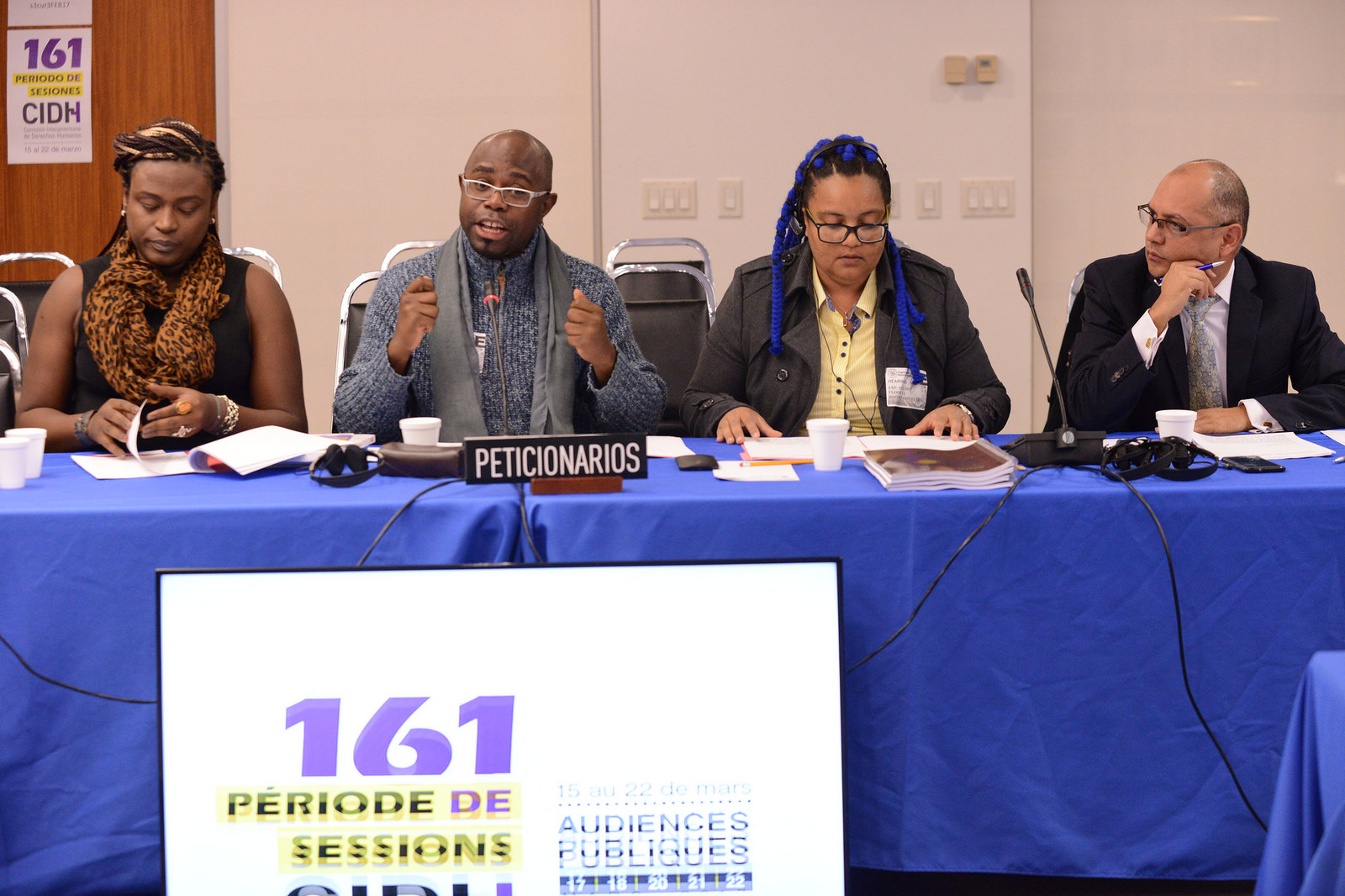National Network of Black LGBT Persons in Brazil and the National Forum for Black Transgender Persons (FONATRANS) Denounce Violence Against LGBTI Afro-Brazilians Before the Inter-American Commission on Human Rights
Representatives of the National Network of Black LGBT Persons in Brazil, the National Forum for Black Transgender Persons (FONATRANS), and the Institute on Race, Equality and Human Rights presented a […]

Representatives of the National Network of Black LGBT Persons in Brazil, the National Forum for Black Transgender Persons (FONATRANS), and the Institute on Race, Equality and Human Rights presented a report on violence against the black LGBTI community during the Inter-American Commission on Human Rights’ public hearing “Complaints of Violence against Afro-descendant LGBTI Persons in Brazil,” which took place during the Comission’s 161st period of sessions on March 22, 2017, in Washington, D.C.
Janaina Oliveira and Washington Dias, both members of the Coordinating Committee of the National Network of Black LGBTI Persons in Brazil, and Alessandra Ramos, National Coordinator of the National Forum for Black Transgender Persons, as well as Carlos Quesada, Executive Director the Institute on Race, Equality and Human Rights, presented extra-official data that showed a sharp increase in acts of violence and hate crimes against the black LGBTI population in Brazil. Two of the gravest problems facing this community include the lack of official statistics on these crimes as well as the high level of impunity perpetrators enjoy.
The petitioners underscored the importance of intersectionality as a crucial element to consider when designing and implementing policies aimed at the Afro-descendant LGBTI population. They explained how a lack of a differentiated approach allows for their exclusion by institutions charged with providing services to them because these institutions are not clear if they should be treated as LGBTI persons or Afro-descendants.
Following their presentation, the petitioners made a series of recommendations, including the following; 1.) that the Commission should include a transversal analysis of race/ethnicity in its next report on the situation of violations of Brazilian LGBTI persons’ rights; 2.) that the Commission should undertake in loco visits to Brazil in order to speak with Brazilian authorities and follow up on actions to combat racism and LGBTI-phobia; 3.) that the Brazilian government should gather official statistical data on the rights situation of Afro-descendant LGBTI persons; 4.) that debate be encouraged on the gender identity of transgender persons, paying special attention to intersectional factors related to race and ethnicity, amongst others.
The Brazilian government, for its part, recognized the violence suffered by Afro-descendant LGBTI persons, as well as the challenges it faces to offer a better response to it. The government representatives also offered some information about recent actions taken on behalf of Afro-descendants (primarily related to affirmative actions in education) and on behalf of LGBTI persons (the establishment of certain government agencies to attend to the community). Nevertheless, the Brazilian government was unable to offer a direct response to the reality faced by the black LGBTI population. Overall, the government’s response demonstrated its weakness and lack of understanding of the issue.
The Commissioners asked both the state and the petitioners to provide additional information on the subject. They also emphasized the need for Brazil to adopt a gender identity law and to collect transversal statistical data on race and ethnicity, especially regarding the ongoing murders of LGBTI people in the country. Commissioners also underscored the need for Brazil to ratify the Inter-American Convention against Racism, Racial Discrimination and Related Forms of Intolerance.
Lastly, the petitioners called attention to how conservative religious groups have been affecting not only the rights of LGBTI persons but also the rights of Brazilian women.
The Institute on Race, Equality and Human Rights believes that the hearing served as an opportunity for the Brazilian government to continue to dialogue and work with Afro-Brazilian LGBTI leaders.
Photo by: Daniel Cima/CIDH used unaltered, under creative commons license cc by 2.0.

